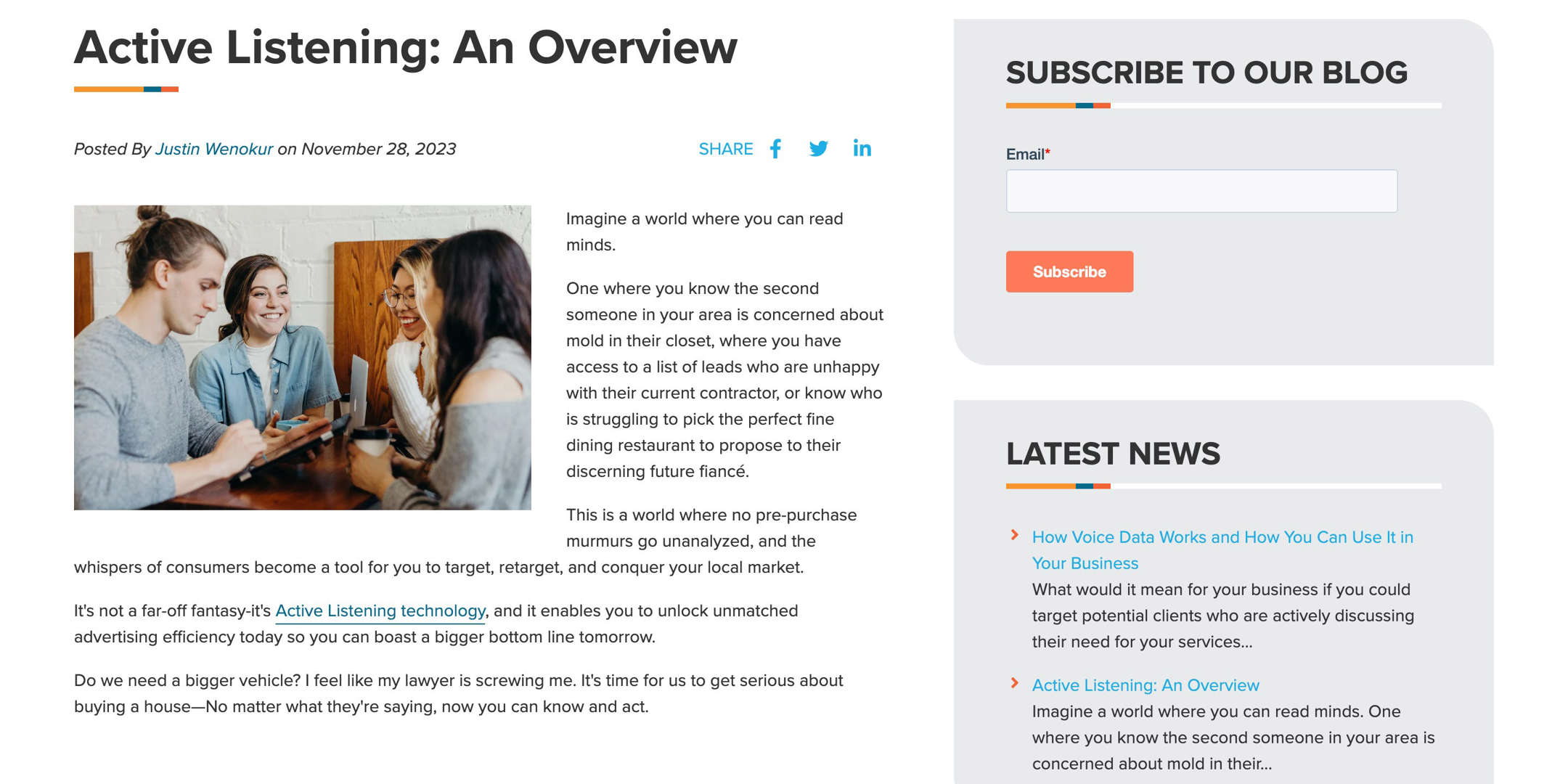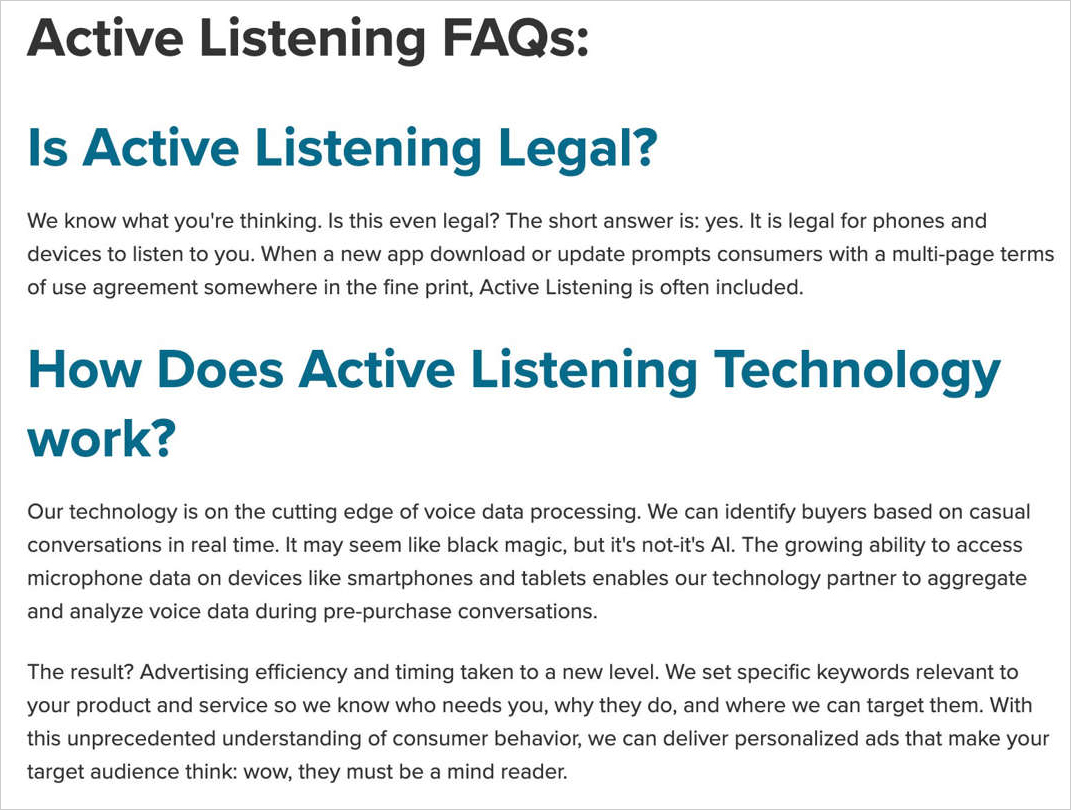Our phones are listening. And Cox Media Group is apparently boasting about that ability. Cox recently detailed a controversial advertising practice it calls “Active Listening” — eavesdropping through internet-connected devices to gather intel on consumers. That data then gets used to target them with relevant ads.
It sounds paranoid, like something from a cyberpunk book. But according to a deleted blog post that’s thankfully been archived, Cox embraces smart devices constantly listening to serve advertisers. By agreeing to terms and conditions (don’t forget to read that fine print folks!), claims Cox, consumers hand over consent for surveillance via microphone access. And with artificial intelligence progressing, the means now exist to monitor at scale.

What Is Active Listening?
So how does Active Listening work exactly? Utilizing an extensive network of listening posts – think phones, speakers, even smart TVs – advanced AI detects purchase intent through conversational analysis. It identifies niche interests, recent events, even clues to your personality. All that data gets leveraged to categorize consumers for micro-targeted promotions.
For instance, over dinner you discuss wanting Chinese food. Soon targeted ads for local restaurants follow you online. Or during a phone call, you debate concert tickets. Expect related sales pitches across your feeds. It might seem harmless, even convenient. But legal experts argue this crosses ethical lines.
Is Active Listening Illegal?
While Cox insists in its post that Active Listening breaks no laws, privacy advocates disagree. “The act of listening to your conversations would seemingly violate consumer privacy laws,” argues marketing veteran Jesse Grillo.
We agree. What Cox is doing is spying masquerading as a free service. They are forcing people to choose between using smart household appliances or personal privacy. It’s inherently unfair. But Cox bragged about it in their Active Listening FAQ before the page was removed from their website.

Even if you click agree to Cox Media Group’s legalese fine print (that no one reads), limits still exist around how companies can monitor consumers. Recording private conversations en masse then mining them for data crosses some lines.
Right now Cox Media is doing some damage control. But even though they have removed the controversial Active Listening article from their website, urgent questions still remain.
Are tech and media companies really exploiting microphone access for commercial gain? How can consumers safeguard privacy? Consumer groups need to push for tools that block device mics along with legislation upholding consent standards for data gathering. Because allowing brands to silently listen from inside households feels less like “savvy marketing” and more like high-tech spying.
Hi, I’m Zack Applegate. I’m a technology writer at MethodShop. Please check out my articles on a variety of topics, including artificial intelligence, music, movies, and silly tech stuff like funny Elon Musk jokes and rock bands with weird names. If you have article ideas, please connect with me on Facebook.












 2024 Nielsen DMA Rankings Reflect Shifting Media Landscape and Growth Trends
2024 Nielsen DMA Rankings Reflect Shifting Media Landscape and Growth Trends
Leave a Reply
You must be logged in to post a comment.